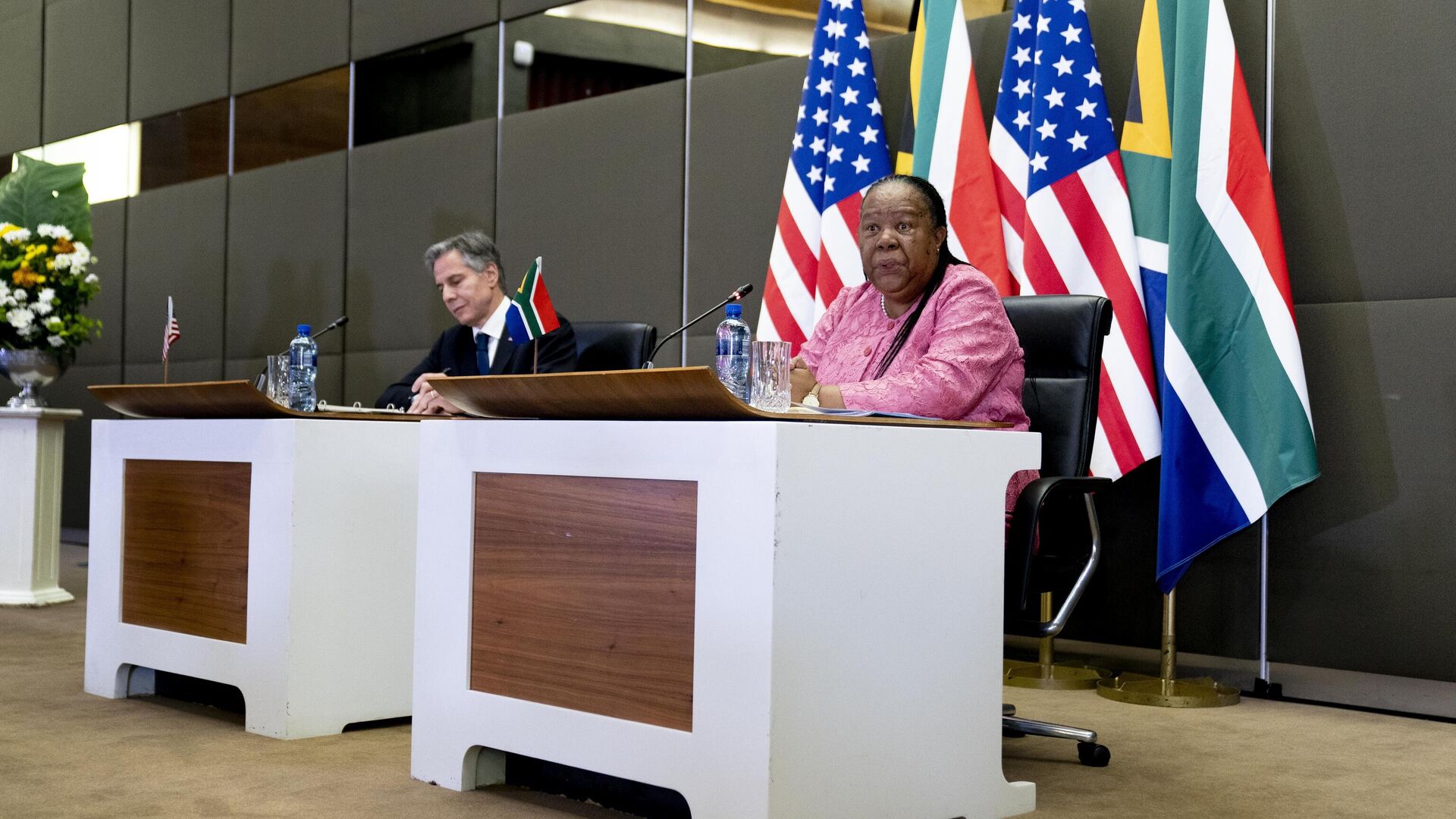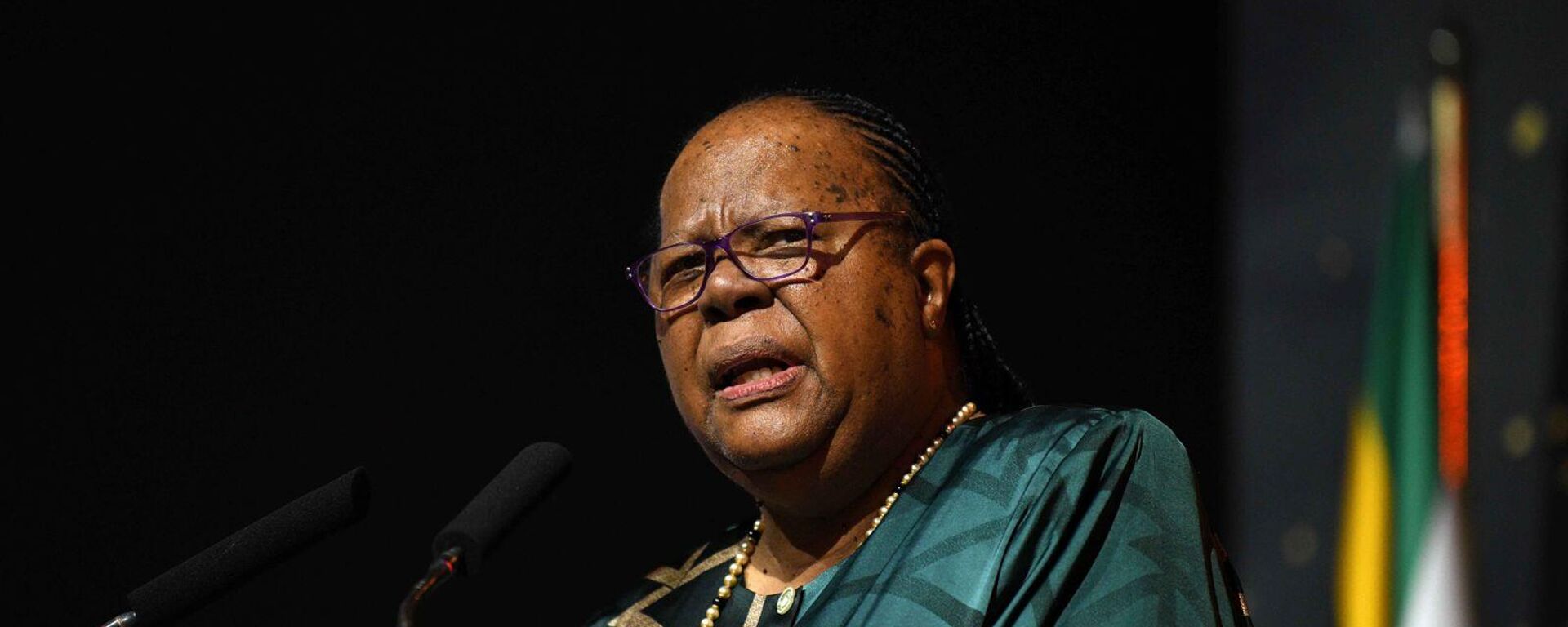https://en.sputniknews.africa/20240212/what-are-implications-of-us-threat-to-cut-south-africa-off-from-agoa-sa-professor-answers-1065047065.html
What Are Implications of US Threat to Cut South Africa Off From AGOA? SA Professor Answers
What Are Implications of US Threat to Cut South Africa Off From AGOA? SA Professor Answers
Sputnik Africa
In light of the recent International Court of Justice (ICJ) ruling on the anti-Israel case brought by Pretoria, a bill was recently introduced in the US... 12.02.2024, Sputnik Africa
2024-02-12T17:30+0100
2024-02-12T17:30+0100
2024-02-12T17:48+0100
opinion
africa insight
south africa
naledi pandor
united states (us)
pretoria
international court of justice (icj)
joe biden
gaza
israel
https://cdn1.img.sputniknews.africa/img/07e7/05/10/1059282454_0:160:3072:1888_1920x0_80_0_0_000e07b38294f964c7e5ed2cf2c94d2c.jpg
The US threat to remove South Africa from the preferential AGOA program would have a negative impact on Washington's global image and would serve as a cautionary tale to potential partners of the White House on how it uses trade agreements as a weapon, Dr. Oscar van Heerden, Senior Research Fellow at the Centre for African Diplomacy and Leadership at the University of Johannesburg, told Sputnik Africa.In addition, the US threats against Pretoria serve as a telling example that if a country goes against Washington's policies and tries "to embarrass" the US, it will be punished and retaliated against, van Heerden added.According to the researcher, threats to cut Pretoria off from AGOA are "economic coercion" stemming from South Africa's dragging the US into a genocide case against Israel, to which the Biden administration has provided arms and aid.Dr. van Heerden opined that if the US Congress decides to ratify the bill, it could drive South Africa closer to countries in the East, such as BRICS nations.He added that although South Africa and the US have a long relationship, the genocide case against Israel could "very well sour" them.In this vein, van Heerden warned of the economic consequences South Africa might face if excluded from AGOA, including increased tariffs and levies on key exports such as automobiles and agricultural products. Such measures, he argued, could not only harm South Africa's industries but also lead to job losses and economic instability.A bill calling for a complete review of the country's relationship with South Africa was introduced in the US Congress last week following the ICJ ruling on Gaza, ordering Israel to take immediate steps to prevent genocide and facilitate the delivery of humanitarian aid to the area.South Africa could join Uganda, the Central African Republic, Gabon, and Niger if it is removed from AGOA. Washington cut the nations off the program last year, accusing CAR and Uganda of "gross violations of internationally recognized human rights" and Gabon and Niger of "failing to uphold the rule of law" since the military coups that overthrew their governments.Ugandan President Yoweri Museveni responded to the decision by saying that the US government has overestimated its importance to the East African country, noting that African countries can move on without Western help.
https://en.sputniknews.africa/20240212/south-africas-fm-regrets-unfortunate-us-congress-review-of-relations-amid-icj-gaza-ruling-1065037989.html
south africa
united states (us)
pretoria
gaza
israel
Sputnik Africa
feedback@sputniknews.com
+74956456601
MIA „Rossiya Segodnya“
2024
Maxim Grishenkin
https://cdn1.img.sputniknews.africa/img/07e7/0a/17/1063018107_0:0:1104:1103_100x100_80_0_0_03090c85a11f5d2e8a19cf1d989443c9.jpg
Maxim Grishenkin
https://cdn1.img.sputniknews.africa/img/07e7/0a/17/1063018107_0:0:1104:1103_100x100_80_0_0_03090c85a11f5d2e8a19cf1d989443c9.jpg
News
en_EN
Sputnik Africa
feedback@sputniknews.com
+74956456601
MIA „Rossiya Segodnya“
Sputnik Africa
feedback@sputniknews.com
+74956456601
MIA „Rossiya Segodnya“
Maxim Grishenkin
https://cdn1.img.sputniknews.africa/img/07e7/0a/17/1063018107_0:0:1104:1103_100x100_80_0_0_03090c85a11f5d2e8a19cf1d989443c9.jpg
africa insight, south africa, naledi pandor, united states (us), pretoria, international court of justice (icj), joe biden, gaza, israel, israeli-palestinian conflict, african growth and opportunity act (agoa)
africa insight, south africa, naledi pandor, united states (us), pretoria, international court of justice (icj), joe biden, gaza, israel, israeli-palestinian conflict, african growth and opportunity act (agoa)
What Are Implications of US Threat to Cut South Africa Off From AGOA? SA Professor Answers
17:30 12.02.2024 (Updated: 17:48 12.02.2024) In light of the recent International Court of Justice (ICJ) ruling on the anti-Israel case brought by Pretoria, a bill was recently introduced in the US Congress to review Washington's relationship with South Africa. The move could also lead to Pretoria being cut off from the African Growth and Opportunity Act (AGOA) preferential trade program.
The US threat to remove South Africa from the preferential AGOA program would have a negative impact on Washington's global image and would serve as a cautionary tale to potential partners of the White House on how it uses trade agreements as a weapon, Dr. Oscar van Heerden, Senior Research Fellow at the Centre for African Diplomacy and Leadership at the University of Johannesburg, told Sputnik Africa.
"Others are going to view this as punishment and are going to be wary of the fact that when you enter into trade agreements with the United States, they can weaponize it and use it against you unless you toe the line," the expert said. "And I think that is going to have serious implications for the Department of Trade in the United States, because it is about their image and whether they can be a trusted ally in trade negotiations."
In addition, the US threats against Pretoria serve as a telling example that if a country goes against Washington's policies and tries "to embarrass" the US, it will be punished and retaliated against, van Heerden added.
"So people are going to become aware of the fact that if you do what you think is right, it might not always result in something positive. It might actually have negative consequences, and unfortunately that is going to be a very bad message that the United States is going to be sending to the world," he pointed out.
According to the researcher, threats to cut Pretoria off
from AGOA are
"economic coercion" stemming from South Africa's dragging the US into a genocide case against Israel, to which the Biden administration has provided arms and aid.
Dr. van Heerden opined that if the US Congress decides to ratify the bill, it could drive South Africa closer to countries in the East, such as BRICS nations.
"Because if we cannot find a reliable partner in the United States, then we have to cast our net a little bit further in terms of trade nations, and, I suspect, higher trade is going to then start happening between South Africa and China, between South Africa and Brazil, India as well as Russia," the expert said.
He added that although South Africa and the US have a long relationship, the genocide case against Israel could "very well sour" them.
In this vein, van Heerden warned of the economic consequences South Africa might face
if excluded from AGOA, including increased tariffs and levies on key exports such as automobiles and agricultural products. Such measures, he argued, could not only harm South Africa's industries but also lead to job losses and economic instability.
Earlier in the day, South African Foreign Minister Naledi Pandor expressed regret over the appeal from the United States' to review its relationship with Pretoria, but added that it's "their democratic right to do so."
A bill calling for a complete review of the country's relationship with South Africa was introduced in the US Congress last week following the ICJ ruling on Gaza, ordering Israel to take immediate steps to prevent genocide and facilitate the delivery of humanitarian aid to the area.
The bill alleges that South Africa's ruling party has acted contrary to its publicly stated policy of non-alignment in foreign affairs.
South Africa could join Uganda, the Central African Republic, Gabon, and Niger if it is
removed from AGOA. Washington cut the nations off the program last year, accusing CAR and Uganda of "gross violations of internationally recognized human rights" and Gabon and Niger of "failing to uphold the rule of law" since the military coups that overthrew their governments.
Ugandan President Yoweri Museveni responded to the decision by saying that the US government has overestimated its importance to the East African country, noting that African countries can move on without Western help.



